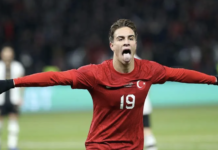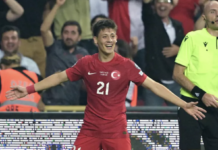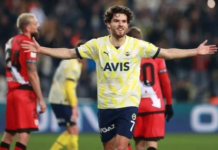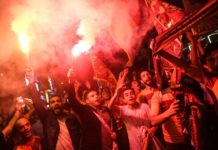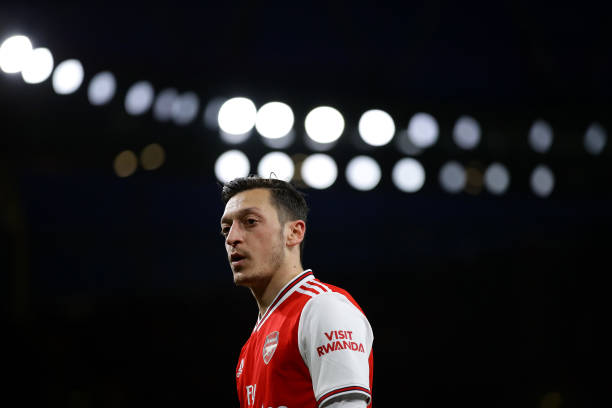
The German FA (DFB) has admitted it ‘made mistakes’ with how it handled the Mesut Ozil situation in the lead up to his retirement from the national team ahead of the 2018 World Cup.
Ozil felt he was made a scapegoat and racially abused after taking a photograph with Turkey president Recep Tayyip Erdogan on the eve of the World Cup.
READ: The Secret Life Of Arsenal Star Mesut Ozil
The playmaker posed with Manchester City midfielder Ilkay Gundogan and Everton striker Cenk Tosun at an event held in London.
Ozil released a statement on social media after the World Cup slamming the German FA for the way he was treated and announced his retirement from the national team afterward.
The German FA have finally admitted they could have handled the situation better and admitted it did not even meet the 31-year-old to solve the problem at the time.
“The DFB made mistakes in dealing with the events surrounding the Ozil case,” general secretary Friedrich Curtis told the German Foundation on Integration.
“A photo became a burning glass for many topics. The moment there were racist allegations, we missed the time to meet with the player.”
Ozil explained his decision to meet the president of Turkey as being simply a show of respect and that he would have done the same for Chancellor Angela Merkel.
“[Erdogan] is the current president of Turkey and I would show respect to that person, whoever it was,” Ozil told The Athletic . “Although I was born and raised in Germany, Turkey is part of my heritage.
“If the German president or [Chancellor] Angela Merkel are in London and ask to see me, to speak to me, of course I would do that as well.
“It’s just about showing respect to the highest position of a country.
“After the photo, I felt disrespected and unprotected. I was receiving racist abuse – even from politicians and public figures – yet nobody from the national team came out at that time and said: ‘Hey, stop. This is our player, you can’t insult him like that.’ Everyone just kept quiet and let it happen.”



